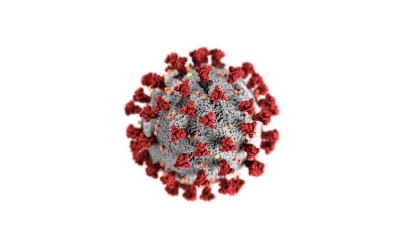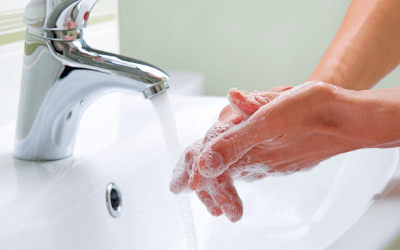What is COVID-19?

COVID-19 is a viral respiratory disease of humans that was first discovered in late 2019. The illness is caused by the virus SARS-CoV-2, which is a new coronavirus that has not previously been identified in humans.
There are many different coronaviruses. In general, each coronavirus affects a different species, causing a unique disease. In humans, coronaviruses typically cause colds and other upper respiratory infections. There are species-specific coronaviruses that affect both dogs and cats. Although all coronaviruses are related, they are all different.
If I am sick with COVID-19, could I spread the virus to my pets?
Most experts feel that it is relatively unlikely for you to infect your pet with COVID-19, but it is certainly not impossible. This disease is still poorly understood, and infectious disease experts are still gathering information about possible human- to-pet transmission.
Have there been reported cases of COVID-19 infection in dogs?
As of April 6, 2020, two dogs have tested positive for SARS-CoV-2. Both of these dogs belonged to owners infected with the virus. Therefore, it is assumed that the dogs were infected by their owners. Neither dog showed any signs of illness at the time the infection was detected.
When these dogs were initially diagnosed, there was some uncertainty over whether the dogs were truly infected or only testing positive due to environmental contamination. Follow-up testing, however, showed that at least one of the dogs developed antibodies against the SARS-CoV-2 virus. Antibodies are developed by the immune system in response to a particular infection; the presence of antibodies in this dog indicates that an actual infection occurred.
Have there been reported cases of COVID-19 infection in cats?
On March 27, 2020, a cat tested positive for SARS-CoV-2. This cat belonged to an owner who had recently recovered from COVID-19. The cat was taken to the veterinarian for signs of illness, including respiratory signs, vomiting, and diarrhea. Diagnostic tests showed that the cat was shedding the virus in its feces.
“It is important to keep in mind that as of April 6, 2020, there are over one million human cases of COVID-19, but evidence of only 4 potential cases in pets.”
At this time, it is not yet known whether the cat’s signs of illness were related to the virus or not. It is possible that the cat’s illness had another cause and the virus was merely an incidental finding. Also, it is unknown whether the virus present in the feces was in an active form that would be capable of causing a human infection. However, contamination of the sample cannot be ruled out as the sample was taken from the environment and by the owner who was positive for COVID-19. Further information is pending, and further research is needed to draw any conclusions about the significance of this finding.
A second cat tested positive in Hong Kong on March 31, 2020 on mouth, nose, and rectal swabs, but has not exhibited signs of illness. Results from blood tests are pending.
It is important to keep in mind that as of April 6, 2020, there are over one million human cases of COVID-19, but evidence of only 4 potential cases in pets.
How should I prepare for COVID-19?
If you become infected with COVID-19, you will be unable to leave your home for a period of several weeks. Therefore, it is important to make sure that you have an accessible supply of pet supplies at home so that you can care for your pet while ill.
Also, if you contract COVID-19, you will need to remain quarantined on your property. This may make caring for dogs a bit more challenging. If you have a private yard, you can walk your dog in this area. If you do not have a private yard, you may be able to train your dog to eliminate indoors. This may prove to be challenging, as once a dog is house trained, he is usually very reluctant to eliminate indoors. If attempting to train your pet to eliminate indoors, use potty pads, pet turf, pet artificial grass trays, or another surface for elimination. Train your dog to eliminate on that surface just as you did when you housetrained him as a puppy by using treats and positive reinforcement.
It may help to put your dog’s leash on before walking him to this new elimination area, to reinforce the idea that this is his new elimination area.
It may be necessary instead to hire a dog walker, pet sitter, or find other alternate care for your pet. The dog walker should be well-versed on how to handle your dog while protecting themselves and understand how to practice physical distancing with you during the transfer. See the handouts “Tips for Dog Walkers During the COVID-19 Pandemic” and “Tips for Pet Sitters During the COVID-19 Pandemic” for ways that dog walkers and pet sitters can protect themselves—and you—while caring for your pets.
Be sure to have at least a one-month supply of the following items:
- Pet food
- Pet medications (including flea and heartworm preventives)
- Cleaning supplies (in case your pet has accidents indoors)
- Pet toys
- Potty pads or pet turf for your dog to eliminate (if you do not have access to a private yard)
- Contact information for a dog walker or pet sitting service in case you are unable to care for your pet
- Cat litter
Many of these supplies can be ordered online, allowing you to practice necessary physical distancing during this time.

If you suspect that you may have COVID-19 (with or without a positive test result), you should minimize contact with your pets. Given that we do not fully understand the potential risks that this virus may pose to pets, it is best to use caution.
Ideally, have another member of your household care for your pets until you are feeling better. Just as you would quarantine yourself from the other human members of your home while sick, you should also quarantine yourself from your pets. Isolate yourself to a single bedroom/bathroom and allow a healthy family member to handle your pet’s meals, walks, playtime, and snuggle time.
“Ideally, have another member of your household care for your pets until you are feeling better.”
If you live alone, you may have no choice but to care for your pets yourself. If this is the case, try to limit contact as much as possible. Consider the following steps, to reduce the likelihood of spreading infection to your pets:
- Wash your hands thoroughly before and after handling your pets.
- Wash your hands before handling your pets’ food and water bowls.
- Limit close contact with your pets, such as snuggling and kisses.
- Cough or sneeze into your elbow or a tissue and dispose of the tissues in a hygienic way where pets cannot access them. Be sure to wash your hands after sneezing or coughing.
- Wear a mask if possible—even a cloth mask—to decrease droplet spread when coughing or sneezing.
- Clean and disinfect frequently touched surfaces.
Can my pets spread COVID-19 from me to other people?
We do not yet have the necessary information to answer that question.
Until we learn more, it is best to avoid boarding or rehoming your pet if you are sick with COVID-19. If you are hospitalized and your pets must be cared for by a boarding kennel, day care, dog walker, or pet sitter, inform them that you are ill. This will allow them to take necessary precautions and limit close contact with your pets. If your pet needs veterinary care and you have current or recent signs of COVID-19, please alert your veterinary team in advance of taking your pet to the clinic so that they can take appropriate precautions.
Catherine Barnette, DVM
© Copyright 2020 LifeLearn Inc. Used and/or modified with permission under license.

